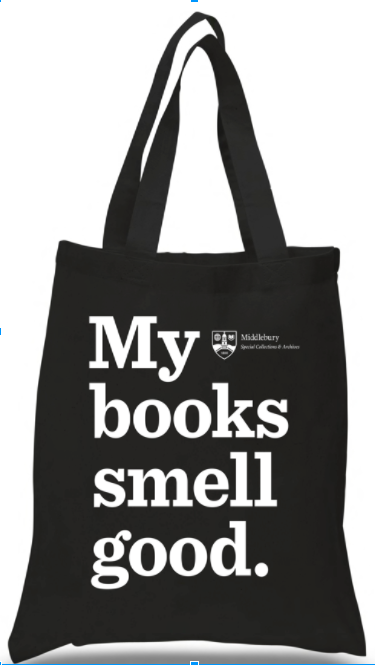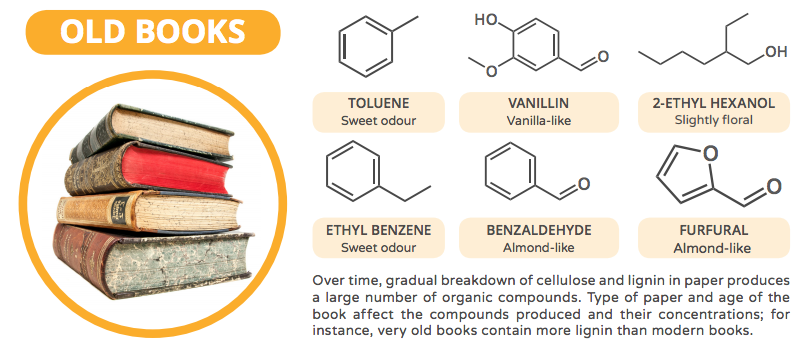 Last summer, Special Collections & Archives rolled out new swag: black tote bags (er, book bags) and stickers emblazoned with the slogan My books smell good. First, we want to thank Carey Bass, Middlebury’s talented graphic designer, for the bold serif font and brash ending punctuation. But… “What does it mean?” (people have asked, with a skeptical gaze). As well as: “Isn’t it a little vulgar?” Some behind-the-scenes seemed overdue.
Last summer, Special Collections & Archives rolled out new swag: black tote bags (er, book bags) and stickers emblazoned with the slogan My books smell good. First, we want to thank Carey Bass, Middlebury’s talented graphic designer, for the bold serif font and brash ending punctuation. But… “What does it mean?” (people have asked, with a skeptical gaze). As well as: “Isn’t it a little vulgar?” Some behind-the-scenes seemed overdue.
In a 2010 interview in The Paris Review, the science fiction writer Ray Bradbury was asked about e-books and Kindles: Those aren’t books. You can’t hold a computer in your hand like you can a book. A computer does not smell. There are two perfumes to a book. If a book is new, it smells great. If a book is old, it smells even better. It smells like ancient Egypt. A book has got to smell. You have to hold it in your hands and pray to it. You put it in your pocket and you walk with it. And it stays with you forever. But the computer doesn’t do that for you. I’m sorry.
That sums it up, though a little curmudgeonly. And from the Journal of Chromatography, chemists used solid-phase microextraction and gas chromatography/mass spectrometry to analyze volatile organic compounds emitted from a naturally aged groundwood pulp paper originating from an old book. (Read it for yourself here.) Volatile organic compounds. This is what we’re talkin’ about:
Another recent article lays out a framework to identify, protect and conserve the smells that influence the way we engage with the past. Smithsonian Magazine wrote about this research, and here’s a photograph of a scientist taking a deep sniff at the National Archives of The Netherlands.
(image credit: Smithsonian Magazine, April 7, 2017)
Whatever it is that brings you to our door—poetry, history, chemistry, or a hankering to smell a centuries old book for yourself—just come. We have lots of bags left and they make memorable graduation gifts. (Totes are $5, while they last.)
Email specialcollections@middlebury.edu
Find us on Instagram and Facebook

